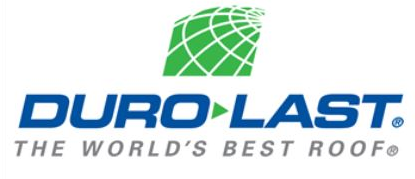Have a roofing-related question? We have the answer. We have the answer! Check out our FAQs below to learn more about our company and services.
-
What are the most common roofing problems homeowners face?
There are many roofing issues that may pop up and require a visit from a certified roofer. Some of the most common issues we see are:
• Roof leaks
• Problems with synthetic roof underlayment
• Gutter issues
• Broken or missing shingles
• Asphalt shingle granules
• Tree damage
• Damaged flashing
-
What are some of the signs that I need a new roof?
• It's been 20-25 years since the roof was last replaced.
• There's water leaking into your home or business.
• Your shingles are visibly cracked or damaged.
• The roof is sagging.
• There's mold on your roof or in your home.
• You've seen a recent spike in your energy bills.
If you're experiencing any of these issues, you should contact a roofer from Trinity Exteriors LLC right away. We're happy to provide roof replacements at a great value. According to Home 365, a replacement roof can yield 85% or more of its investment costs, so don't wait!
-
What are the main components of a roof?
• Shingles
• Sheathing
• Trim
• Rafters
• Underlayment
• Flashing
• Drainage
A licensed roofer from Trinity Exteriors LLC can inspect your roof to make sure all components are functioning properly.
-
At what age should a roof be replaced?
Depending on the material, the lifespan of a roof could be anywhere between 20 and 50 years. Asphalt shingles tend to last anywhere from 10 to 20 years, according to Bob Vila. Metal roofs, on the other hand, can last 30 to 50 years, according to This Old House. A roofer from Trinity Exteriors LLC would be happy to discuss your roof's project lifespan and the ways you can prolong it.
-
What should I look for in a roofing contractor?
You should never work with a roofer who isn't licensed or insured or who doesn't provide warranties for their work. All of our roofing services come backed by all the necessary certifications and credentials. We're also happy to provide you with examples of previous projects.
-
If my roof sustained damage from storms or natural disasters will my insurance company pay for repairs:
Review your insurance policy to understand what types of damage are covered. Most homeowners' insurance policies provide coverage for damage caused by wind, hail, and other storms. However, the extent of coverage can vary widely depending on your policy, where you live and certain exclusions stated within your policy. Other considerations that determine if they will pay for repairs or replacement are:
• Deductible: Keep in mind that you'll likely have to pay a deductible before your insurance coverage kicks in. Make sure you understand your deductible amount and how it applies to roof damage claims.
• Documentation: Document the damage thoroughly with photos or videos as soon as it's safe to do so. This documentation can be crucial when filing a claim with your insurance company. Trinity Exteriors will provide you with free drone video for documentation to your insurance company.
• Timely Reporting: Notify your insurance company promptly after discovering the damage. Delaying the reporting of damage could result in complications or even denial of your claim.
• Professional Assessment: Trinity Exteriors is an professional roofing contractor who can accurately assess the damage. They can provide an expert opinion on the extent of the damage and help ensure that all necessary repairs are included in your insurance claim.
-
Will Trinity Exteriors work with my insurance company on necessary repairs:
Yes, Trinity Exteriors works with all insurance companies. We will provide the documentation needed for coverage of repairs or replacement that will be needed due to damage from storms or natural disaster such as a tree falling onto your roof. We will also provide an estimate of repair or replacement costs.
-
Will a new Roof lower my Energy bills?
A new roof can indeed lower energy bills, primarily through improved insulation and better energy efficiency. Here are several ways a new roof can contribute to reduced energy costs:
• Improved Insulation: Modern roofing materials and techniques provide better insulation compared to older roofs. This helps maintain a consistent indoor temperature, reducing the need for heating and cooling.
• Reflective Roofing Materials: Some new roofs use reflective materials or coatings that reflect more sunlight, reducing the heat absorbed by the roof. This is especially beneficial in hot climates, as it helps keep the building cooler and reduces the need for air conditioning.
• Ventilation Enhancements: A new roof often includes improved ventilation systems. Proper ventilation helps regulate attic temperatures, preventing heat buildup in the summer and moisture accumulation in the winter, both of which can impact energy efficiency.
• Energy-Efficient Roofing Options: Options like cool roofs, green roofs, or solar shingles can provide significant energy savings. Cool roofs are designed to reflect more sunlight and absorb less heat, green roofs provide natural insulation, and solar shingles generate electricity, reducing dependency on external power sources.
• Reduced Air Leaks: Over time, roofs can develop gaps and leaks that allow conditioned air to escape and outside air to enter, making your HVAC system work harder. A new roof can seal these gaps, improving overall energy efficiency.
Additional Considerations
• Climate: The effectiveness of a new roof in reducing energy bills can depend on the local climate. Reflective roofs, for example, are particularly beneficial in hot, sunny regions.
• Roofing Material: The type of roofing material you choose can also impact energy efficiency. Materials like metal, tile, and certain shingles are known for their energy-saving properties.
• Existing Roof Condition: If your current roof is in poor condition with inadequate insulation or ventilation, a new roof can provide substantial improvements in energy efficiency.
While the initial investment in a new roof can be significant, the long-term savings on energy bills, along with the potential increase in property value and comfort, often justify the expense.
-
What type of roof material is best for roof replacement?
While asphalt shingles have been the most popular roofing material for years, there are now several other options for home & commercial property owners to choose from .
• Asphalt shingles or luxury asphalt shingles
• Metal roofing
• Clay & concrete tiles
• Slate
• Wood Shingles & Shakes
• Synthetic Roofing Materials like Rubber, Plastic or Polymer
• Green Roof
• Solar shingles
• Built-up roofing (BUR)
• Modifies Bitumen roofing
Consider things like curb appeal, durability, longevity, climate, budget & maintenance. Our Roofing specialist at Trinity Exteriors will work with you depending on your specific need, to help determine the best materials for your next roofing project.
-
Does Trinity Exterior Provide warranties?
Yes, we provide all manufacturer warranties for up to 50 years, we only use materials from top brands like GAF, CertainTeed, Exterior Portfolio, FiberTite, Boral, James Hardie, Owens Corning, and more! We stand behind all our workmanship, ask about specific labor warranties for the job you are requesting an estimate for. You can trust our highly trained and knowledgeable team to get your project done right the first time.
-
Will my insurance company pay for repairs if my roof sustained damage from storms or natural disasters?
Before working with our roofers, you should confirm your insurance policy to understand the types of damage it covers. Most homeowners' insurance policies include coverage for damage caused by wind, hail, and other storms. However, the extent of this coverage can vary significantly based on your policy, your location, and any exclusions listed in your policy. Here are some key factors to consider:
- Deductible: You will likely need to pay a deductible before your insurance coverage applies. Ensure you know your deductible amount and how it impacts roof damage claims.
- Documentation: Thoroughly document the damage with photos or videos as soon as it's safe. This documentation is crucial when filing a claim. Trinity Exteriors offers free drone video documentation to support your claim with your insurance company.
- Timely Reporting: Report the damage to your insurance company promptly. Delaying this report could lead to complications or even denial of your claim.
- Professional Assessment: Trinity Exteriors is a professional roofing contractor who can accurately assess the damage. They can provide an expert opinion on the extent of the damage and help ensure all necessary repairs are included in your insurance claim.
-
Will Trinity Exteriors LLC work with my insurance company on necessary repairs?
Yes, Trinity Exteriors LLC works with all insurance companies. As an experienced roofer, we'll provide the documentation needed for coverage of repairs or replacements that will be needed due to damage from storms or natural disasters such as a tree falling onto your roof. We will also provide an estimate of repair or replacement costs.
-
Does Trinity Exteriors LLC provide warranties?
Yes, our company manufacturer warranties that are good for up to 50 years. We only use materials from top brands like GAF, CertainTeed, Exterior Portfolio, FiberTite, Boral, James Hardie, Owens Corning, and more! We stand behind all our workmanship. Ask about specific labor warranties for the job for which you're requesting an estimate. You can trust our highly trained and knowledgeable roofers to get your project done right the first time.
-
Will a new roof lower my energy bills?
In our experience, having a roofer install a new roof can indeed lower energy bills. Here are several ways we've found how a new roof can contribute to reduced energy costs:
- Improved Insulation: Modern roofing materials and techniques offer better insulation. This helps maintain a consistent indoor temperature, reducing the need for heating and cooling.
- Reflective Roofing Materials: Some new roofs use reflective materials or coatings that reflect more sunlight, reducing heat absorption. This is especially beneficial in hot climates, helping to keep your home cooler and reducing the need for air conditioning.
- Better Ventilation: A new roof often includes improved ventilation systems. Proper ventilation regulates attic temperatures, preventing heat buildup in summer and moisture accumulation in winter, which both impact energy efficiency.
- Energy-Efficient Options: Options like cool roofs, green roofs, or solar shingles can save significant energy. Cool roofs reflect more sunlight and absorb less heat, green roofs provide natural insulation, and solar shingles generate electricity, reducing reliance on external power sources.
- Sealed Air Leaks: Over time, roofs can develop gaps and leaks that let conditioned air escape and outside air in, making your HVAC system work harder. A new roof seals these gaps, improving energy efficiency.
The benefits of a new roof on energy bills depend on several factors. The climate plays a significant role and reflective roofs are particularly beneficial in hot, sunny regions. The type of roofing material you choose also impacts energy efficiency, with materials like metal, tile, and certain shingles known for their energy-saving properties. Furthermore, if your existing roof is in poor condition with inadequate insulation or ventilation, a new roof can offer significant improvements in energy efficiency. While a new roof is a significant investment, the long-term savings on energy bills, increased property value, and improved comfort often make it worthwhile.
-
What type of roof material is best for a roof replacement?
While asphalt shingles have been the most popular roofing material for years in our experience, there are now several other options for home and commercial property owners to choose from:
- Asphalt shingles or luxury asphalt shingles
- Metal roofing
- Clay and concrete tiles
- Slate
- Wood shingles and shakes
- Synthetic Roofing Materials
- Green roofing
- Solar shingles
- Built-up roofing (BUR)
- Modified Bitumen roofing
It's important to consider curb appeal, durability, longevity, climate, budget, and maintenance. Our roofers will work with you to determine the best materials for your next roofing project.









Share On: